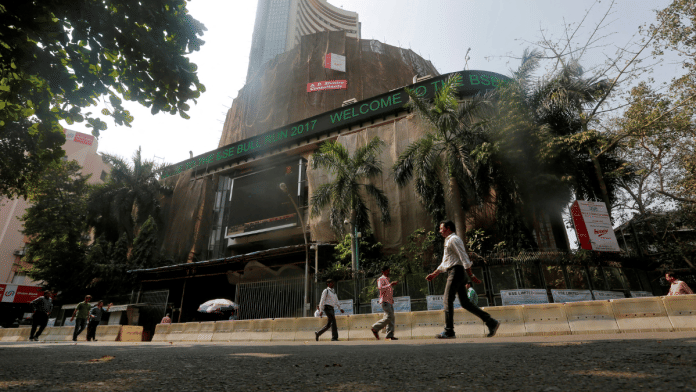Thank you dear subscribers, we are overwhelmed with your response.
Your Turn is a unique section from ThePrint featuring points of view from its subscribers. If you are a subscriber, have a point of view, please send it to us. If not, do subscribe here: https://theprint.in/subscribe/
Every few months, India finds a new villain — usually someone who’s dared to rise above the mediocrity that we worship. This time it’s Vikas Kaushal, Chairman and Managing Director of Hindustan Petroleum Corporation Ltd. The man who runs a Maharatna enterprise with a turnover north of ₹4.6 lakh crore, employing tens of thousands, refining millions of barrels of crude, and filling the nation’s tanks — is being dragged through the gutter because he lives in a ₹10-lakh-a-month rented flat in Nariman Point.
The headlines thunder: “Public funds! Austerity! Accountability!”
The mob screams: “He should live in Chembur!”
Really? A man steering a multi-billion-dollar enterprise should live in a government relic because it’s “tradition”?
Let’s call this what it is — India’s incurable disease: the Crab Syndrome. The belief that anyone who climbs higher must be pulled down, preferably by the ankle and in public view.
The Hypocrisy of Outrage
The same India that swoons over Elon Musk’s yacht, applauds Mukesh Ambani’s 27-storey home, and binge-watches “The Billionaire Class” on Netflix suddenly turns into a monk when a public-sector executive rents a decent apartment.
Yes, Kaushal draws a government salary. Yes, HPCL is a PSU. But what he runs is no sleepy sarkari department — it’s a Fortune-500-scale industrial engine competing globally, refining crude worth billions, navigating volatile oil prices, foreign currency exposures, supply shocks, sanctions, and policy swings.
If the man wants to live close to his office, near energy ministry meetings, or within reach of Mumbai’s corporate and diplomatic hub — that’s not extravagance, that’s operational convenience.
Would you prefer that he commute three hours a day from Chembur to Nariman Point, running a Maharatna from the back seat of an Innova?
Our Austerity Fetish
Indians love poverty — not as a problem to be solved but as a moral virtue to be flaunted. We want our saints barefoot, our CEOs self-flagellating, and our achievers apologizing.
We measure success by the absence of comfort.
So when a PSU head lives decently, we clutch our pearls and scream “public money!” as if ₹1 crore a year in rent is what will bankrupt a company that pays over ₹2,000 crore in corporate taxes and contributes billions in excise duties.
Newsflash: India bleeds not because its executives live well, but because its bureaucrats think small. We cut perks, not inefficiency. We chase gossip, not governance.
The Real Crime
The real scandal here isn’t a rented flat — it’s the Indian mindset that mistakes pettiness for morality.
Every time we see an Indian doing well — especially within a government system — we assume he’s corrupt, unworthy, or overpaid. That suspicion, that envy, that hunger to humiliate is what keeps this country chained to mediocrity.
The British left 77 years ago, but we still run on the moral economy of clerks: distrust ambition, romanticize austerity, demonize success.
Kaushal’s blunt response to the media — “do whatever is in your capacity” — wasn’t arrogance. It was exhaustion. Exhaustion from explaining to small minds what it takes to run a big institution.
The Wake-Up Call
Let’s be clear: accountability is essential. Transparency must prevail. But there’s a difference between auditing public expenditure and auditing a man’s dignity.
If we want PSUs to perform like global corporations, we must treat their leaders like global executives — not like guilty civil servants waiting for permission to breathe.
The irony? The same people crying “austerity” are the ones who will happily post selfies at five-star hotels during conferences funded by taxpayers.
India’s biggest problem isn’t corruption — it’s resentment. The inability to celebrate success without suspicion. The refusal to believe that one of our own can be competent, ambitious, and deserving.
So, before you light your next moral bonfire over a rented apartment, ask yourself this:
Are you angry because it’s wrong — or because it reminds you how small your own world is?


